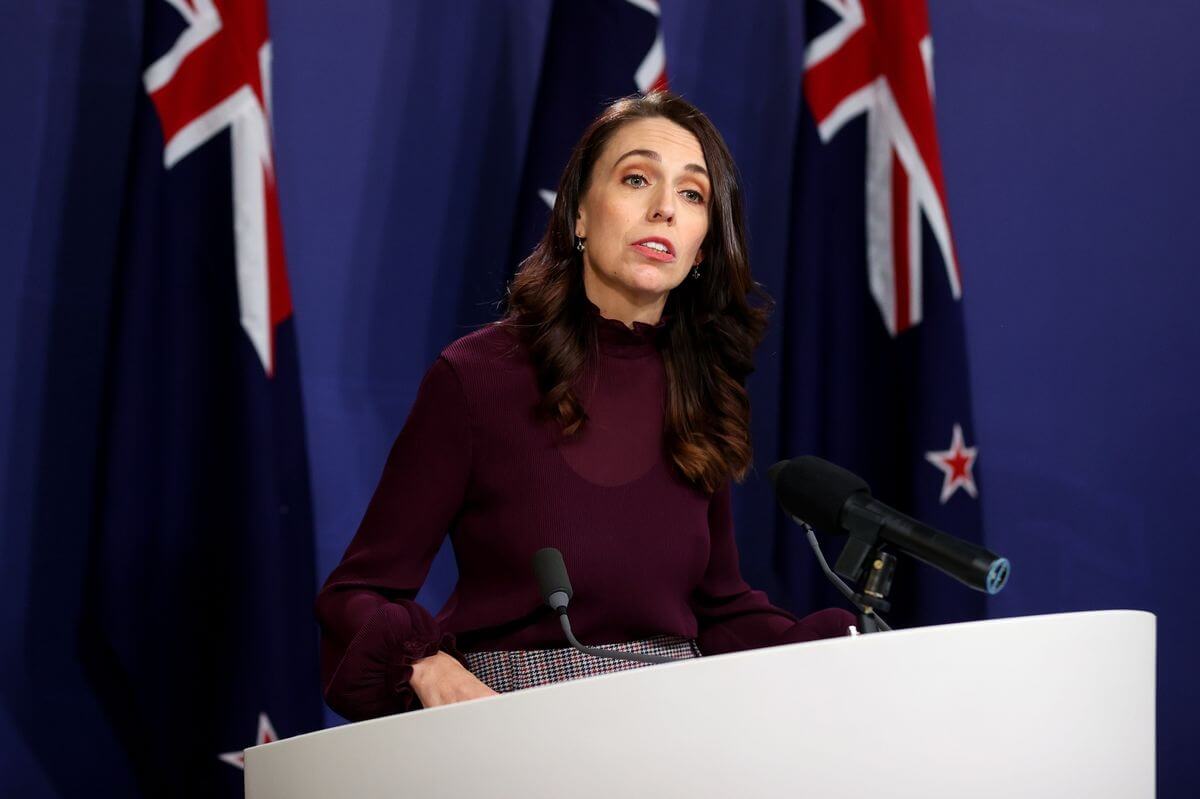New Zealand Prime Minister (PM) Jacinda Ardern on Monday dismissed rumours that the country would take steps to become a republic in the wake of Queen Elizabeth II’s death.
When asked whether the transition of leadership in the British monarchy would prompt New Zealand to take measures to become a republic, Ardern told reporters that she has “never sensed the urgency” to do so, as there are other pressing matters her government is dealing with.
“There’s so many challenges we face. This is a large, significant debate. Don’t think it’s one that would or should occur quickly,” Ardern stated.
New Zealand PM Jacinda Ardern on the death of Queen Elizabeth II:
— NowThis (@nowthisnews) September 8, 2022
‘The queen has been such a constant in our lives for 70 years … Her commitment to her role, and to all of us, has been without question and unwavering’ pic.twitter.com/yEq0eIyiAW
The PM did, however, acknowledge that the move may be a possibility in the future. “I do believe that is where New Zealand will head in time. I believe its likely to occur in my lifetime but I don’t see it as a short-term measure or anything that is on the agenda any time soon,” she said.
Under the country’s present political system, New Zealand recognises the British monarch as its head of state, who is represented by a governor-general within the country. The governor-general’s role is primarily ceremonial.
Their Majesties The King and The Queen Consort have arrived at the Palace of Holyroodhouse in Edinburgh, Scotland. pic.twitter.com/RPEkLhf6gp
— The Royal Family (@RoyalFamily) September 12, 2022
With the Queen’s death, King Charles III assumed the role of the head of state not only in the United Kingdom (UK), but also 13 other countries, including Antigua and Barbuda, Australia, the Bahamas, Belize, Canada, Grenada, Jamaica, New Zealand, Papua New Guinea, Saint Kitts and Nevis, Saint Lucia, Saint Vincent and the Grenadines, Solomon Islands, and Tuvalu.
The death of the 96-year-old British monarch has sparked an independence debate in several of these countries.
Antigua and Barbuda PM Gaston Browne on Saturday announced plans to hold a referendum on removing the British monarch as the head of the state within three years.
“Through all the years of her reign, The Queen, like so many generations of our family before her, found in the hills of this land, and in the hearts of its people, a haven and a home.”
— The Royal Family (@RoyalFamily) September 12, 2022
His Majesty The King's reply to the motion of condolence at Scottish Parliament:
However, aspirations for full independence have been brewing in these countries for some time now.
Last year, Barbados, another Caribbean country, voted to transition to a republic and subsequently appointed Sandra Mason as the country’s first-ever president.
Then, during then-Duke and Duchess of Cambridge William and Catherine’s Caribbean tour in March, Jamaican Prime Minister Andrew Holness said his country is “moving on” and will achieve its “true ambition” of being fully “independent” via a referendum within the next three years.
During the same trip, Belizean Prime Minister Johnny Briceño constituted the People’s Constitutional Commission to pursue a “decolonisation process,” signalling his intent to declare Belize a republic and replace the monarch with a native president.
The Queen’s children hold a Vigil beside Her Majesty’s coffin in St Giles’ Cathedral, Edinburgh. pic.twitter.com/8VCFQ9SAp9
— The Royal Family (@RoyalFamily) September 12, 2022
In Australia, too, PM Anthony Albanese began assessing the process for transitioning to a republic after he was elected in May. In June, he appointed Canberra’s first minister to look into the steps.
However, on Sunday, Albanese, like Ardern, said that now is not the time to introduce such a change, instead focusing on paying tribute to the monarch. He has also previously stated that holding a referendum to make the move was not something his administration would prioritise during his first term in office.
In the same vein, many New Zealanders have speculated in the past that the transition debate would enter public discourse only after the death of Queen Elizabeth II, given her global popularity. However, Ardern said she “never attached” the two events “in that way.”
Jacinda Ardern says it's time New Zealand started having the conversation about New Zealand becoming a republic #Vote2017 pic.twitter.com/PTinILQOU3
— nzherald (@nzherald) August 22, 2017
Following Elizabeth’s passing, the PM said that the Queen was an “extraordinary” and “incredible woman,” who New Zealand was “lucky enough to call [its] Queen.”
She also announced yesterday that the country would commemorate the Queen’s demise with a public holiday on September 26, a decision that was implemented by neighbouring Australia as well.
“As New Zealand’s queen and much-loved sovereign for over 70 years, it is appropriate that we mark her life of dedicated public service with a state memorial service and a one-off public holiday,” Ardern said.
The New Zealand government will hold a state memorial service on that day in Wellington. Ardern will also leave for the UK this week to attend the now-former Queen’s funeral.

